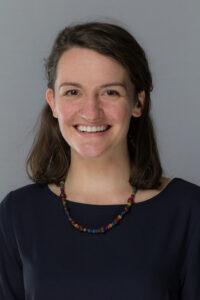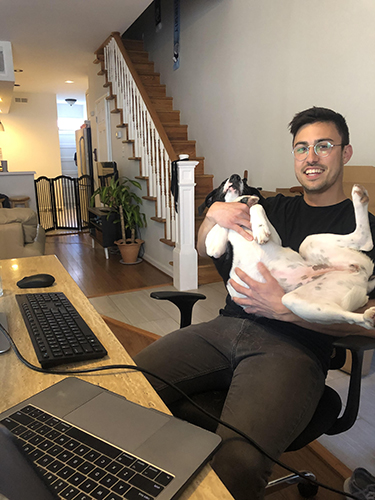Meet the Knauss Fellows: Elizabeth McNamee
By Eva Ryan, University of Wisconsin-Madison
The Sea Grant Knauss Fellowship is a nationally competitive opportunity that sends graduate students interested in ocean, coastal and Great Lakes resources and policy to the historical hub that is Washington, D.C. There, these students are paired with a congressional member or committee or placed within a federal program in order to learn more about the policies surrounding our natural resources.
Next in the lineup of introductions of the 2022 Wisconsin Sea Grant Knauss fellows is Elizabeth McNamee.
While pursuing her master’s degree in soil science and agroecology at the University of Wisconsin-Madison, McNamee enrolled in environmental biophysics, a course taught by Chris Kucharik.
“It completely changed how I see the world,” said McNamee, “I fell in love with biophysics.” McNamee carried on to describe how she would notice things that before taking environmental biophysics, at which she would not have batted an eye.
“I learned why fog gathers after a cool night or why it’s so dry indoors in the winter. Minor things that altered my perspective and showed me how physics is everywhere,” she said.

Elizabeth McNamee, one of four Knauss Fellows from Wisconsin in 2022-23. Submitted photo.
Kucharik, in collaboration with previous research fellow Mallika Nocco (Nocco is now a cooperative extension specialist), developed a project that involves applied science and answering scientific questions useful to farmers. The project became a Ph.D. opportunity for McNamee at the University of Wisconsin-Madison, where she has studied agronomy.
The research that McNamee has conducted as part of her Ph.D. so far revolves around applied science, water conservation and agriculture, all of which contain information that could be used to directly inform water conservation policy and improve farmers’ environmental impacts.
McNamee discovered the Knauss Fellowship opportunity through a friend and colleague. “I’m really interested in the intersection of science and policy,” said McNamee, making the Knauss Fellowship a perfect fit for her.
Eager to cultivate her current knowledge as well as explore new concepts in the field of policy, McNamee is most excited to improve her scientific translation skills in order to cater to broader audiences, and gain insight into how scientists can further apply their expertise outside of academia.
“I’m hoping to gain exposure to how policy is created and how science can support it,” she said. “I’m excited to learn about something completely new. My position will be focused on coastal resilience.” She is serving her one-year fellowship in the National Centers for Coastal Ocean Science in the National Oceanic and Atmospheric Administration.
With a background in agronomy, McNamee certainly has unique perspectives to bring the fellowship. These perspectives coupled with her strong devotion to her studies are bound to make a splash in Washington, D.C.
McNamee, along with the other 73 fellows, began the Knauss Fellowship on Feb. 1.
The post Meet the Knauss Fellows: Elizabeth McNamee first appeared on Wisconsin Sea Grant.News Releases | Wisconsin Sea Grant
News Releases | Wisconsin Sea Grant
https://www.seagrant.wisc.edu/news/meet-the-knauss-fellows-elizabeth-mcnamee/?utm_source=rss&utm_medium=rss&utm_campaign=meet-the-knauss-fellows-elizabeth-mcnamee

